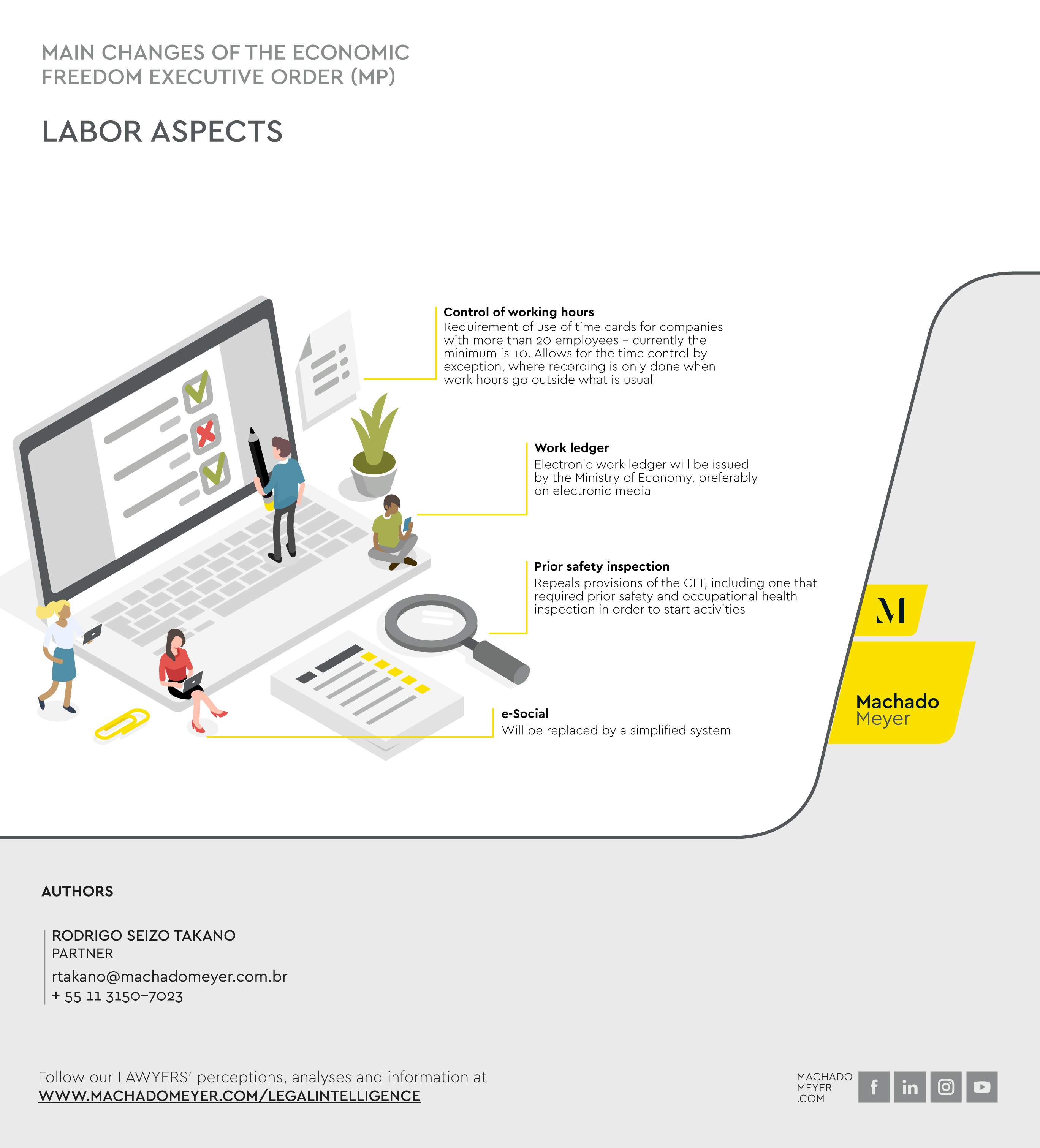Law No. 13,874/19, enacted on September 20 after the conversion into law of the Economic Freedom Executive Order (MP 881/19), amended various points of labor legislation with the main objective of reducing bureaucracy in the procedures to be followed by employers.
The main labor impacts of the new rule established by the Declaration of Economic Freedom Rights are as follows:
Cutting the red tape for labor matters
With the new law, only companies with more than 20 employees are required to keep track of working hours, with recording of the entry and exit times of their employees. Previously, the obligation applied to companies with more than 10 employees.
The change in the legislation also allows the recording of time by exception (i.e., based on deviations from normal work hours), provided that it is preceded by a written individual agreement or collective bargaining agreement.
Law No. 13,874/19 further provides that eSocial will be replaced by a simplified digital bookkeeping system for social security, labor, and tax obligations.
In addition, the physical Work History and Social Security Records (CTPS) will be issued restrictively in exceptional cases, such that the electronic version will be the rule. In it, the only identification of the employee will be the CPF, and the deadline for annotations will change from 48 hours to 5 days. In addition, the fine that was imposed on employers in event of withholding of the document for more than 48 hours was repealed.
Cutting the red tape in labor matters
The new law provides that legal entities are not to be confused with their partners, associates, founders, or officers and directors. In the event the corporate veil is pierced, the effects of certain obligations extend only to the private property of the officers or directors or partners who have benefited directly or indirectly from the abuse.


